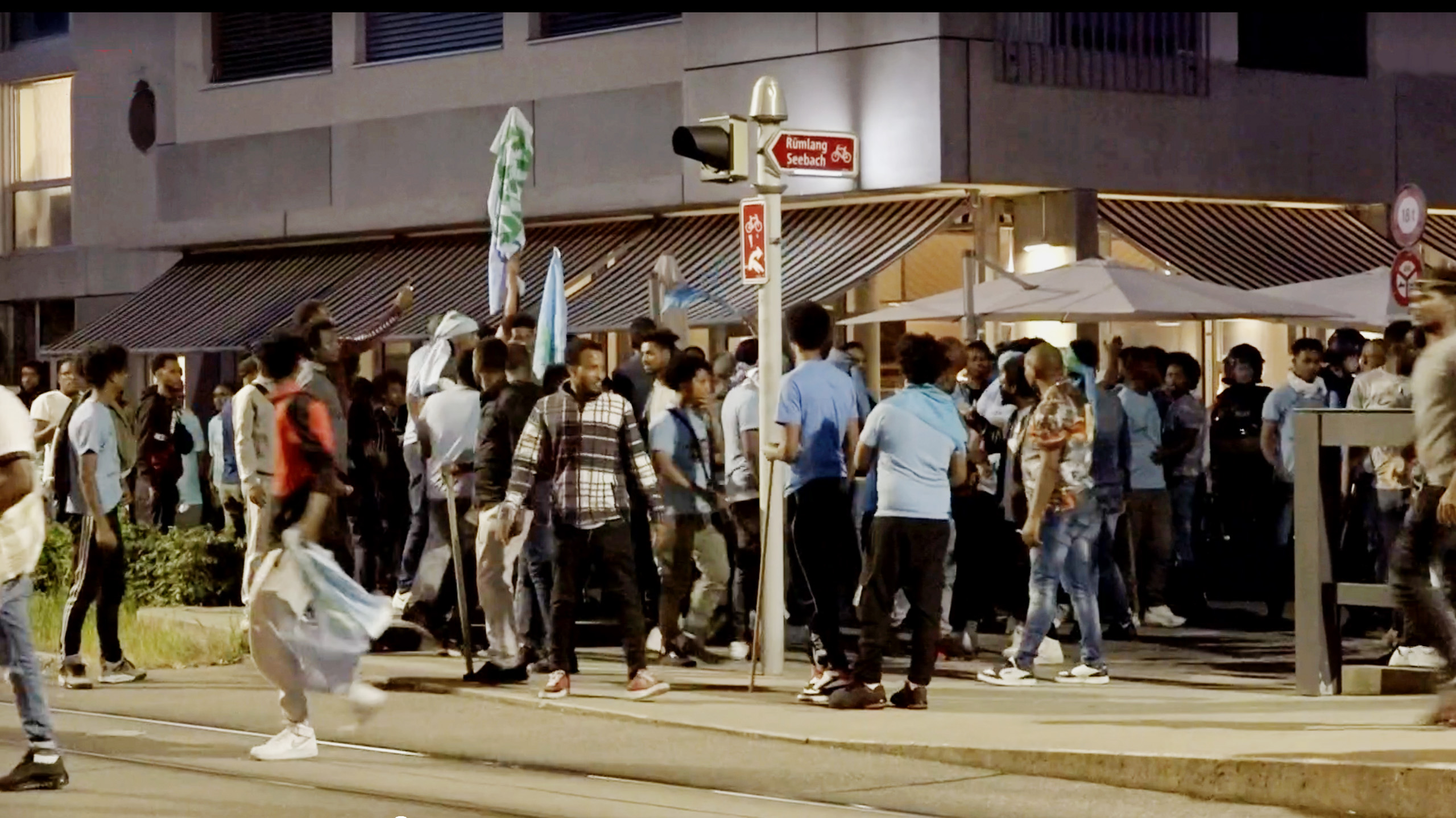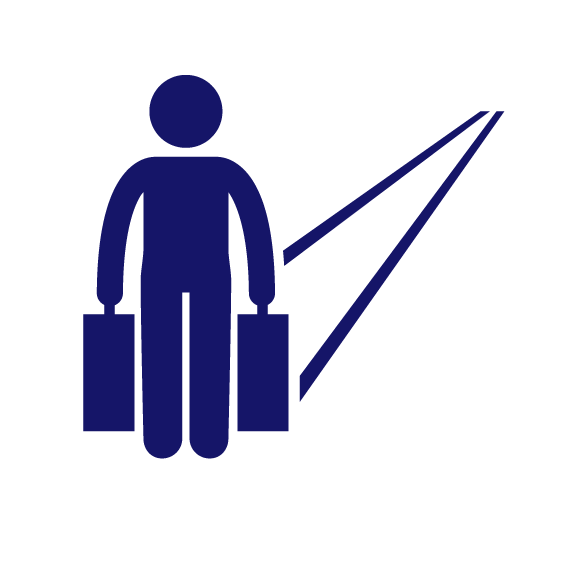
Switzerland expects high numbers of asylum seekers in 2024

Switzerland expects to see 30,000 asylum seekers this year, around the same number of people as in 2023.
The number of asylum applications increased again last year. Although conclusive statistics are still missing, there are likely to have been over 30,000 asylum applications. The government, cantons and municipalities therefore had to organise additional accommodation. And the numbers are likely to remain high in 2024, as initial federal estimates show.

More
Explainer: the flare-up in clashes among Eritreans in Switzerland
According to these “non-binding scenarios”, the responsible State Secretariat for Migration (SEM) is assuming around 28,000 applications for the current year. The fluctuation range is +/- 2000.
However, the number could still increase. The SEM continues: “An increase is conceivable, but a decrease is unlikely.”
Experience has shown that requests decrease somewhat in the winter months. They are likely to rise again from April at the latest when the Mediterranean becomes calmer again. The State Secretariat is expecting this to happen again this year. The burden on the asylum system will remain high in 2024.
In addition to the regular asylum applications, there are also applications for protection status S. Around 500 people from Ukraine still apply for S status every week. According to the State Secretariat for Migration, there are currently around 66,000 people with S status in Switzerland.
Because the number of new Status S applications and people from Ukraine leaving Switzerland are roughly the same, the number of people with S Status in Switzerland has remained relatively stable for several months.
According to SEM, it is also difficult to predict the migration flows resulting from the war in Ukraine. Regarding the 500 weekly requests, it says: “This value is likely to continue or decrease slightly in 2024.”

More
Asylum in Switzerland
This news story has been written and carefully fact-checked by an external editorial team. At SWI swissinfo.ch we select the most relevant news for an international audience and use automatic translation tools such as DeepL to translate it into English. Providing you with automatically translated news gives us the time to write more in-depth articles. You can find them here.
If you want to know more about how we work, have a look here, and if you have feedback on this news story please write to english@swissinfo.ch.

In compliance with the JTI standards
More: SWI swissinfo.ch certified by the Journalism Trust Initiative




























You can find an overview of ongoing debates with our journalists here . Please join us!
If you want to start a conversation about a topic raised in this article or want to report factual errors, email us at english@swissinfo.ch.